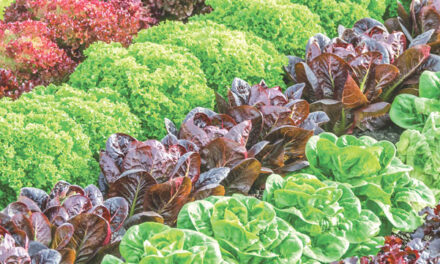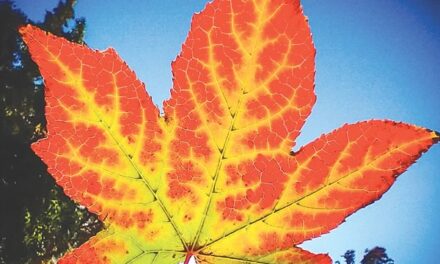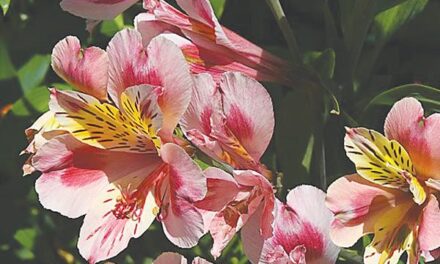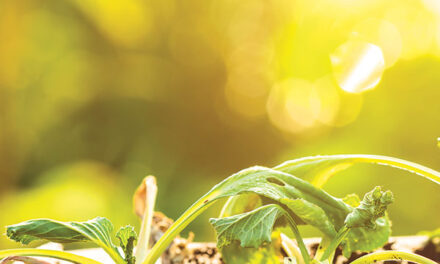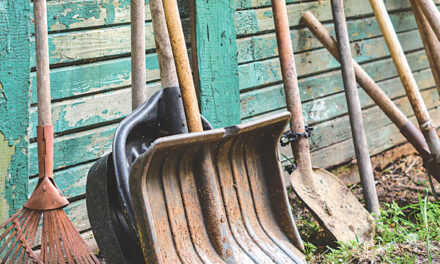My dishwasher threatens a work stoppage. I have a repair warranty. If I lose my phone, I have insurance. If my car is crushed, I have coverage.
I’m not aware of any warranty or insurance that covers and reimburses everyday plant calamities. When pricey trees, shrubs or perennials die or create havoc, you pay to remove and replace the problem plants. Ouch.

Trouble, accompanied by cost, can sometimes be avoided. Start the new year with an awareness of brewing disasters. My personal experiences and the cries of others who ask for help may be of assistance. Fair warnings only work if heeded, but the best way to sidestep impending doom is to share and learn.
Walking in my neighborhood I see things I cannot unsee. Sacramento is a tree-loving city. Subjecting young trees to staking and tying for years is not showing love.
If a young tree has a sizeable root system when planted, it will not need handholding. The reason young trees may be staked at all is to ensure an anemic root ball is allowed time to grow large enough to anchor the top growth and prevent toppling on windy days.
One year is usually long enough, then remove the supports so the tree can bend in the wind and strengthen its trunk. A tree that has been staked and tied for several years is a weak tree and prone to a short life.
Material used to attach the tree to stakes should be wide and flexible, allowing the trunk to sway on windy days. If ties are left on too long and are too tight, the trunk is susceptible to girdling damage.
Avoid bad landscape trees, like fruitless mulberry, willows, liquidambar, silver maples, coast redwoods and eucalyptus. These trees and others may be suitable away from structures on an acre or more, but can be a nightmare on smaller, urban lots.
Some bad trees are water hogs. Others send out aggressive root systems that lift and crack driveways, sidewalks, even home foundations. Roots can crack underground irrigation pipes, sewer and water lines. Limb drop and excessive debris are other shortcomings of bad urban trees.
If you already have mature trees that are poor choices, consider replacing them with recommended trees. Visit the Sacramento Tree Foundation at sactree.org for a list of recommended trees.
Before buying expensive perennials and shrubs this spring, address two planting site factors that determine life or death for newcomers—soil and sunlight. Nutrient-rich soil and adequate sunlight significantly improve chances of survival. A full-sun perennial will not thrive in a shady location. Read the nursery labels and ask questions at the nursery.
The UC Cooperative Extension Master Gardeners of Sacramento County website at sacmg.ucanr.edu has a section on garden soil, plus just about every other gardening topic of interest or need. Soil testing and amending soil before planting is always a good idea. A $30 perennial in poor soil is not a happy marriage.
When the nursery label says the height of the perennial or shrub will be 3 feet and the growth width will be 5 feet, add a foot to each. Sacramento’s growing conditions are prone to exceeding advertised results.
And to ensure new plants survive our blazing summers, irrigate “water-efficient” and “drought-tolerant” plants regularly the first year. These tough plants will be drought tolerant once the root systems develop. Ignore their water needs the first year and you likely will toss a dead plant in the green waste bin or compost pile.
My hope is that you relax and smell the orange blossoms and not get overburdened with worry and cost. Enjoy the new gardening year!
Dan Vierria is a University of California Cooperative Extension Master Gardener for Sacramento County. He can be reached at masterg29@gmail.com. For answers to gardening questions, contact the UCCE Master Gardeners at (916) 876-5338, email mgsacramento@ucanr.edu or visit sacmg.ucanr.edu. Follow us on Facebook and Instagram: @insidesacramento.




